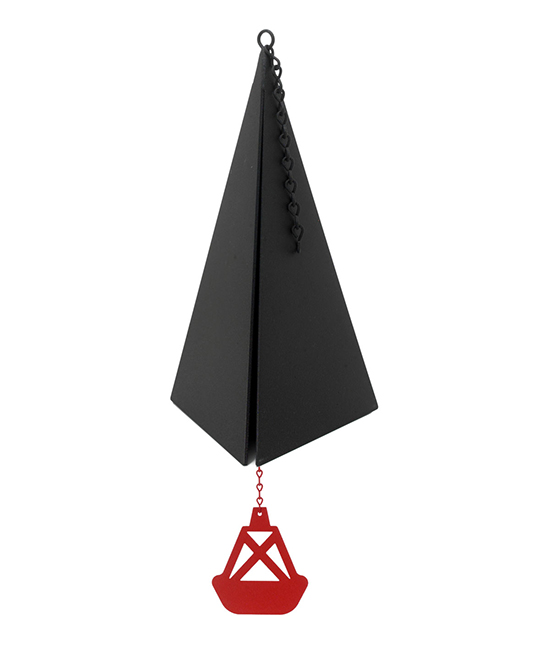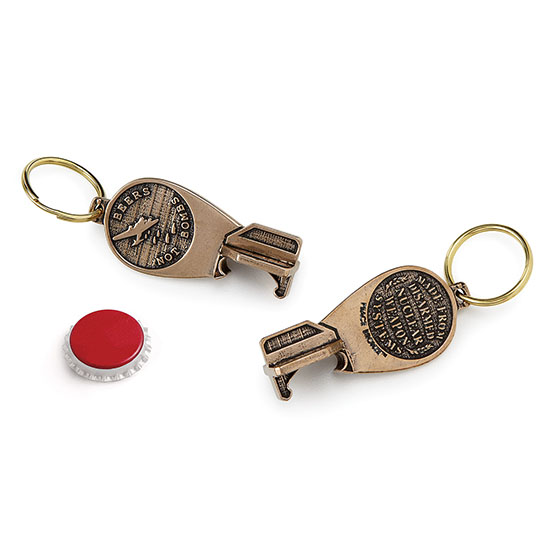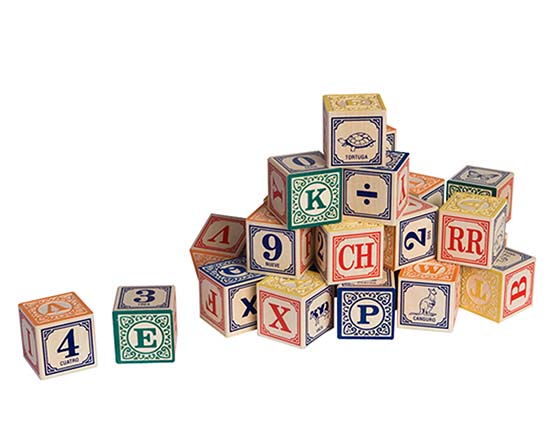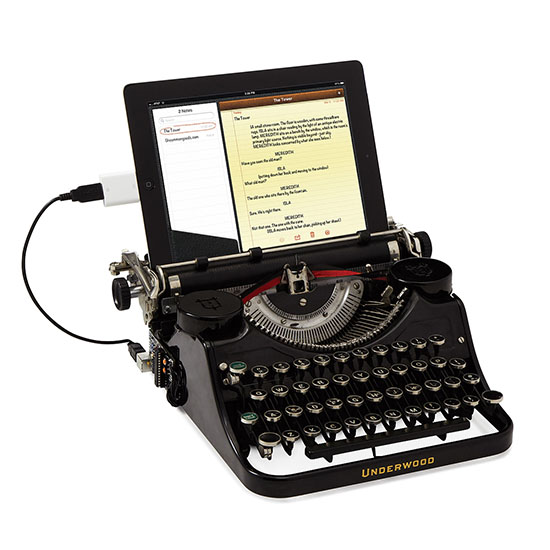 Back in your school English classes, your teacher instructed you in the wonders of figurative language. Metaphor and simile, for example. Or, if your teacher was more ambitious, such devices as sibilance and synecdoche. But there is a whole realm of language mechanics that even the bravest high school educator will not breach. Anastrophe, for example, is when a grammatically correct sentence has its pieces rearranged. Think Yoda from Star Wars: “Patience you must have.” Antimetabole is the use of the same words in successive clauses, but in reverse order: “Do what you like, and like what you do.” Epanalepsis creates emphasis by using the same word or phrase at both the beginning and end of a sentence: “The king is dead; long live the king!” Merism refers to a single thing by referring to its parts: you use this figure of speech whenever you address “Ladies and gentlemen!” when referring to an audience. Tmesis allows you to chop a single word in half, so that you can insert a different word into its middle for emphasis: “Abso-bloomin’-lutely!” And zeugma gets complicated, by having two different parts of a sentence tie into a single word or phrase: Dickens wrote how a broken-hearted young lady “went straight home, in a flood of tears and a sedan-chair.”
Back in your school English classes, your teacher instructed you in the wonders of figurative language. Metaphor and simile, for example. Or, if your teacher was more ambitious, such devices as sibilance and synecdoche. But there is a whole realm of language mechanics that even the bravest high school educator will not breach. Anastrophe, for example, is when a grammatically correct sentence has its pieces rearranged. Think Yoda from Star Wars: “Patience you must have.” Antimetabole is the use of the same words in successive clauses, but in reverse order: “Do what you like, and like what you do.” Epanalepsis creates emphasis by using the same word or phrase at both the beginning and end of a sentence: “The king is dead; long live the king!” Merism refers to a single thing by referring to its parts: you use this figure of speech whenever you address “Ladies and gentlemen!” when referring to an audience. Tmesis allows you to chop a single word in half, so that you can insert a different word into its middle for emphasis: “Abso-bloomin’-lutely!” And zeugma gets complicated, by having two different parts of a sentence tie into a single word or phrase: Dickens wrote how a broken-hearted young lady “went straight home, in a flood of tears and a sedan-chair.”
 The history of French toast, like the food itself, is rich but not very transparent. Similar recipes date all the way back to ancient Greece. There is written record of the food in medieval England, but with a French name: pain perdu. That title, which means “lost bread” in reference to how battering could make a stale loaf palatable, is still used in America’s Cajun country. When the term specific phrase “French toast” first appeared in the 1660s, it was referring to a cooked bread that had been soaked in wine and fruit juice, rather than an egg dip. And when the dish as we know it now started to grow in popularity in 19th century America, it was just as likely to be known as “German toast,” “Spanish toast,” or simply “egg toast.” It is generally agreed, however, that the all-American version of the food—a New York innkeeper named Joseph French invented the recipe in 1724 and named it after himself—is unlikely to be true.
The history of French toast, like the food itself, is rich but not very transparent. Similar recipes date all the way back to ancient Greece. There is written record of the food in medieval England, but with a French name: pain perdu. That title, which means “lost bread” in reference to how battering could make a stale loaf palatable, is still used in America’s Cajun country. When the term specific phrase “French toast” first appeared in the 1660s, it was referring to a cooked bread that had been soaked in wine and fruit juice, rather than an egg dip. And when the dish as we know it now started to grow in popularity in 19th century America, it was just as likely to be known as “German toast,” “Spanish toast,” or simply “egg toast.” It is generally agreed, however, that the all-American version of the food—a New York innkeeper named Joseph French invented the recipe in 1724 and named it after himself—is unlikely to be true.
 Bell-bottom pants didn’t simply co-evolve with the polyester leisure suit. They were first all the rage in the early 1800s, specifically among sailors. That’s no exaggeration, either, because even uniforms change with the fashions, and this was the first time that an American-born fashion trends was picked up by the Royal Navy and other navies across the pond. At that time, the flared pant legs were no mere decoration. They were favored because the shape allowed them to be rolled up to the knee, making it easier to scrub the deck or climb up in the rigging unimpeded. It is also rumored that a knotted pair of bell-bottoms could hold enough air to act as a makeshift life preserver, but that may simply be an attempt to explain why the style keeps bobbing back to the surface of popular fashion every decade or so.
Bell-bottom pants didn’t simply co-evolve with the polyester leisure suit. They were first all the rage in the early 1800s, specifically among sailors. That’s no exaggeration, either, because even uniforms change with the fashions, and this was the first time that an American-born fashion trends was picked up by the Royal Navy and other navies across the pond. At that time, the flared pant legs were no mere decoration. They were favored because the shape allowed them to be rolled up to the knee, making it easier to scrub the deck or climb up in the rigging unimpeded. It is also rumored that a knotted pair of bell-bottoms could hold enough air to act as a makeshift life preserver, but that may simply be an attempt to explain why the style keeps bobbing back to the surface of popular fashion every decade or so.
Uncommon Knowledge: Is it Veterans, Veteran’s or Veterans’ Day?
November 11, 2013 The punctuation was easier back when it was called Armistice Day. The armistice being celebrated was the one signed at Compiègne, France, which ended the first World War. It went into effect on the 11th hour of the 11th day of the 11th month of 1918, and has been the occasion for global commemorations ever since. However, by 1954 it was pretty evident that “the war to end all wars” had not actually done so, and Armistice Day was officially expanded to include honoring those who served in all wars. That’s when this holiday, which pays tribute so many who have unselfishly served their country, was also given the new name of Veterans Day—plural, but not possessive.
The punctuation was easier back when it was called Armistice Day. The armistice being celebrated was the one signed at Compiègne, France, which ended the first World War. It went into effect on the 11th hour of the 11th day of the 11th month of 1918, and has been the occasion for global commemorations ever since. However, by 1954 it was pretty evident that “the war to end all wars” had not actually done so, and Armistice Day was officially expanded to include honoring those who served in all wars. That’s when this holiday, which pays tribute so many who have unselfishly served their country, was also given the new name of Veterans Day—plural, but not possessive.
 The cinnamon that is spicing up your pumpkin latte was once considered so rare and precious that it was a gift suitable for kings and gods. Though not uncommon in its native lands of South Asia, it was an exotic (and expensive) import in Europe and canny tradesmen intended to keep it that way. They began to invent exotic stories about the origin of the spice. Herodotus, the ancient historian, recorded reports that cinnamon trees were guarded by flying snakes, and that the phoenix bird would use cinnamon to build its nest—presumably appreciating its fiery scent. Medieval writer Jean de Joinville visited Egypt in 1248, where he reported the news that cinnamon was actually dredged from the Nile, somewhere near its source at the edge of the world. But perhaps the most fanciful account was that of the cinnamon bird. These large (and non-existent) birds lived in Arabia, and used cinnamon to build their nests along the sheer, inaccessible faces of certain cliffs. It was said that the Arabs would leave pieces of animal carcass lying near the nests to lure down the birds. These pieces were evidently so large that when the birds would snatch them up and carry them home, their nests would collapse and topple right off of the cliff, leaving the spice hunters to simply pick up the twigs of cinnamon below.
The cinnamon that is spicing up your pumpkin latte was once considered so rare and precious that it was a gift suitable for kings and gods. Though not uncommon in its native lands of South Asia, it was an exotic (and expensive) import in Europe and canny tradesmen intended to keep it that way. They began to invent exotic stories about the origin of the spice. Herodotus, the ancient historian, recorded reports that cinnamon trees were guarded by flying snakes, and that the phoenix bird would use cinnamon to build its nest—presumably appreciating its fiery scent. Medieval writer Jean de Joinville visited Egypt in 1248, where he reported the news that cinnamon was actually dredged from the Nile, somewhere near its source at the edge of the world. But perhaps the most fanciful account was that of the cinnamon bird. These large (and non-existent) birds lived in Arabia, and used cinnamon to build their nests along the sheer, inaccessible faces of certain cliffs. It was said that the Arabs would leave pieces of animal carcass lying near the nests to lure down the birds. These pieces were evidently so large that when the birds would snatch them up and carry them home, their nests would collapse and topple right off of the cliff, leaving the spice hunters to simply pick up the twigs of cinnamon below.
 There was a time when Greek was the universal language of civilized Europeans. By the Middle Ages, however, Latin had become dominant to the point that some monastery scribes, when faced with a text that needed translating, would simply write a note in Latin saying, “It is Greek. It cannot be read.” It was Shakespeare who helped formalize our English version of the phrase in Julius Caesar: “It was Greek to me.” But English isn’t the only language that adopted this idiom. In Spanish, when someone is impossible to understand, you might say, “hablar en griego.” The phrase came with the Spaniards to the New World, and over time the word for “Greek” transformed into “gringo.”
There was a time when Greek was the universal language of civilized Europeans. By the Middle Ages, however, Latin had become dominant to the point that some monastery scribes, when faced with a text that needed translating, would simply write a note in Latin saying, “It is Greek. It cannot be read.” It was Shakespeare who helped formalize our English version of the phrase in Julius Caesar: “It was Greek to me.” But English isn’t the only language that adopted this idiom. In Spanish, when someone is impossible to understand, you might say, “hablar en griego.” The phrase came with the Spaniards to the New World, and over time the word for “Greek” transformed into “gringo.”
 A mere 240,000 miles away from earth, the Moon Museum is definitely worth a visit the next time you’re in the neighborhood. Created in 1969, it offers works by such prominent artists as Andy Warhol, Robert Rauschenberg and Claes Oldenburg. Granted, the museum is a little small. It is built from a specially-made ceramic tile that measures .5 x .75 inches. The tile, which is engraved with six different works of art, was never officially approved by NASA and was smuggled aboard the Apollo 12 spacecraft. Astronauts then supposedly mounted the tiny gallery on a leg of the landing module, which remained on the surface of the moon when the expedition returned home. Critics complain that, while it boast spectacular views, the Moon Museum is entirely lacking in atmosphere.
A mere 240,000 miles away from earth, the Moon Museum is definitely worth a visit the next time you’re in the neighborhood. Created in 1969, it offers works by such prominent artists as Andy Warhol, Robert Rauschenberg and Claes Oldenburg. Granted, the museum is a little small. It is built from a specially-made ceramic tile that measures .5 x .75 inches. The tile, which is engraved with six different works of art, was never officially approved by NASA and was smuggled aboard the Apollo 12 spacecraft. Astronauts then supposedly mounted the tiny gallery on a leg of the landing module, which remained on the surface of the moon when the expedition returned home. Critics complain that, while it boast spectacular views, the Moon Museum is entirely lacking in atmosphere.
 Electrical transmission of documents and images didn’t begin with the Internet, of course. But for those of us who remember the heyday of the fax machine, it may be more surprising to know that faxing also didn’t begin with the telephone. Thirty years before Alexander Graham Bell got his patent, Scottish inventor Alexander Bain was developing images via telegraph lines in 1843. Trained as a clock-maker, Bain used synchronized pendulums at the sending and receiving end to scan the message, and the facsimile would be printed out using a special, electrically sensitive paper. Unfortunately, Bane’s invention had some major flaws—the pendulums were never perfectly synchronized, and the quality of the image was very poor—and by the time he tried to patent it in 1850, other inventors had already patented superior versions of the device.
Electrical transmission of documents and images didn’t begin with the Internet, of course. But for those of us who remember the heyday of the fax machine, it may be more surprising to know that faxing also didn’t begin with the telephone. Thirty years before Alexander Graham Bell got his patent, Scottish inventor Alexander Bain was developing images via telegraph lines in 1843. Trained as a clock-maker, Bain used synchronized pendulums at the sending and receiving end to scan the message, and the facsimile would be printed out using a special, electrically sensitive paper. Unfortunately, Bane’s invention had some major flaws—the pendulums were never perfectly synchronized, and the quality of the image was very poor—and by the time he tried to patent it in 1850, other inventors had already patented superior versions of the device.
